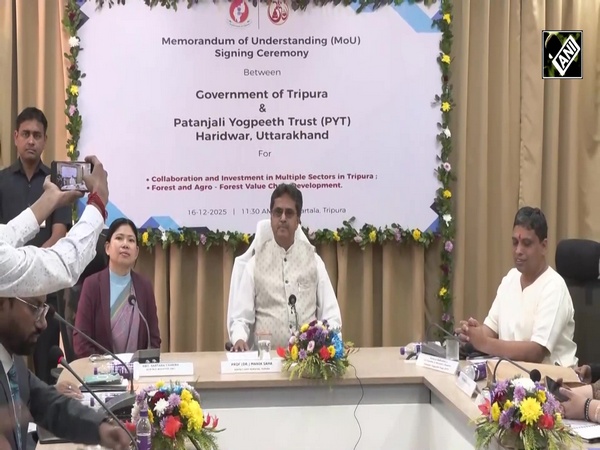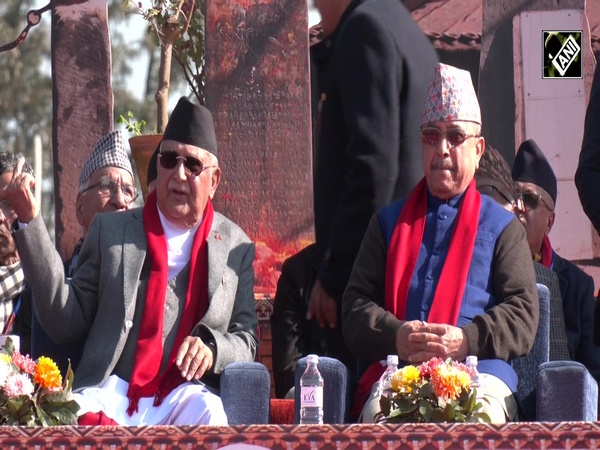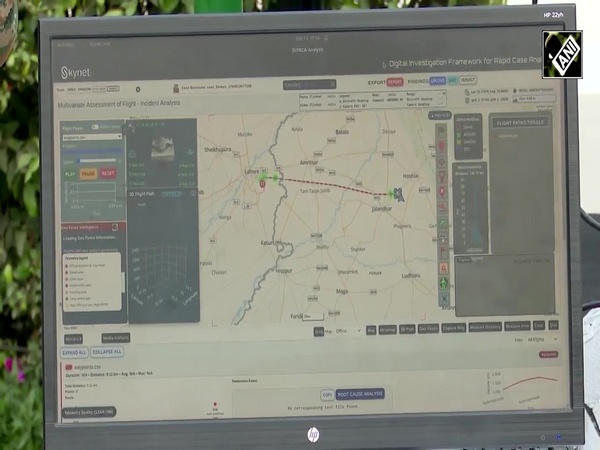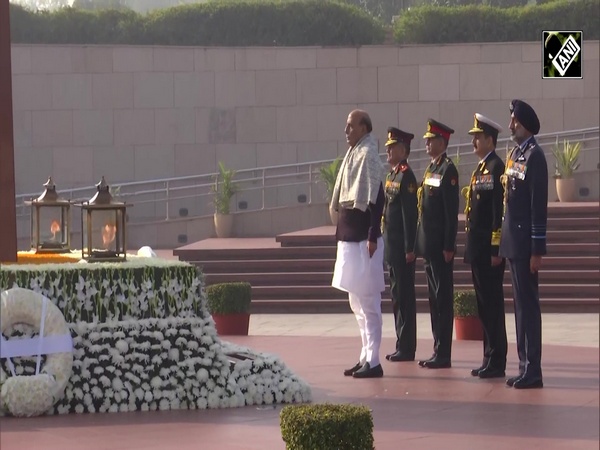'One China' principle and 'One Country, Two Systems' policy are ironical
May 19, 2022

Beijing [China], May 19 : China's 'One China' Principle and its policy, 'One Country, Two Systems' are ironic to each other. The principle is a desire of China to occupy the island of Taiwan while its policy is a lullaby to promise that Hong Kong would enjoy the same democratic traditions and institutions that its residents used to enjoy even after it is transferred to Beijing.
But whenever China has any interaction with a third country, it makes them sign a declaration that it adheres to the 'One China Principle.' In view of the activities that China was doing in Taiwan like sending warships and combat aircraft to the coastal region of Taiwan to threaten Taipei into submission and the imposition of National Security law in Hong Kong in July 2020, it seems that the 'One Country, Two Systems' policy has been given a rather indecent burial, Global Strat View reported.
China, in 1984, promised Hong Kong in elaborating the policy of 'One Country, Two Systems' but now it sounds like more than mockery. "We are pursuing a policy of 'one country two systems,'" according to an article in China Internet Information Centre, a state-run web portal in China, carried out in June 1984.
"The Chinese government is firm in its position, principles and policies on Hong Kong. After China resumes the exercise of its sovereignty over Hong Kong in 1997, Hong Kong's current social and economic systems will remain unchanged, its legal system will remain basically unchanged. Our policies with regard to Hong Kong will remain unchanged for 50 years, and we mean this," the web portal was quoted as saying by Global Strat View.
The Hong Kong-China relationship paved its way back in 1984 when Sino-British Joint Declaration was signed. According to the joint declaration, Hong Kong was to be handed to China in 1997. Under the Declaration, Hong Kong was to be constituted as a Special Administrative Region under the People's Republic of China, enjoying a "high degree of autonomy, except in foreign and defence affairs."
However, this Special Administrative Region's existing rights, freedoms, and lifestyle remain unchanged for 50 years from 1997, including rights and freedoms of the person, of speech, of the Press, of assembly, of travel, of strike, of academic research, and of religious belief.
According to a House of Commons Briefing Paper issued on July 5, 2019, the Joint Declaration is a legally binding treaty. It was registered in the United Nations on May 27, 1985. China has not taken, however, long to renege on the Joint Declaration. Officials of the Foreign Ministry of China, as the House of Commons Briefing Paper says, in 2017 suggested that the arrangements under the Joint Declaration were "now history."
Following the concern of the United Kingdom Government about the police crackdown on protests in Hong Kong in June - July 2019, Chinese Foreign Ministry spokesman Geng Shuang said this is 'purely China's internal affairs'.
The protests were mainly against a Bill to allow the extradition of individuals to mainland China to face criminal charges. The ambassador of China in London, Liu Xiaoming, accused the U. K. Government of interfering in China's affairs.
And the promulgation of the National Security Law in Hong Kong in June 2020 has rung the death bell of the 'One Country Two Systems' policy, reported Global Strat View.
National Security Law gives the Chinese central government and the Hong Kong government sweeping powers to control schools, social organizations, the media, and the internet.
China's 'One China Principle,' is described as the foundation stone for its government's policy on Taiwan. Armed with this unilateral "principle," China wants to achieve a "peaceful reunification" of Taiwan but could resort to the "use of force" either.
Since the Chinese government has turned this 'One China Principle' into a 'mantra,' any third country entering into any agreement with the Chinese government - be it the Belt and Road Initiative or any other bilateral tie, they have to sign a declaration that it adheres to the 'One China Principle.'
As a recent example, after then Pakistan Prime Minister Imran Khan met with the President Xi Jinping in Beijing in February 2022 during the Winter Olympics, the joint statement said, "The Pakistan side expressed its commitment to One China Policy and support for China on Taiwan, South China Sea, Hong Kong, Xinjiang and Tibet."
There is little historical justification for the People's Republic of China to claim sovereignty over the island of Taiwan. PRC had never extended its authority over Taiwan or any other island now administered by the Republic of China.
The Republic Of China government of Chiang Kai-shek started exercising control over Taiwan after Japan surrendered in 1945 to mark the end of World War II. The ROC government relocated to Taiwan while fighting a civil war in mainland China. Since then, ROC has continued to exercise effective jurisdiction over the island of Taiwan and a number of other outlying islands, leaving Taiwan and mainland China each under the rule of a different government.
Though designed for the Taiwan issue, there is also an attempt on the part of the satraps in Beijing to use the so-called 'One China Principle' to legitimize their illegal occupation of Tibet.
"Nepal and China take the Belt and Road Initiative as an important opportunity to deepen mutually beneficial co-operation in all fields. The Nepali side reiterates its firm commitment to One China Policy, acknowledging that Taiwan is an inalienable part of the Chinese territory and Tibet Affairs are China's internal affairs, and the determination on not allowing any anti-China activities on its soil," the joint statement issued by China and Nepal after President of China Xi Jinping's visit to Kathmandu in October 2019 reads. This agreement is a formal extension of the 'One China Policy' to Tibet.
A large number of Tibetan refugees are sheltered in Nepal. China wants to ensure that they do not take any initiative to assert the rights of Tibetans in Tibet. China has also thrust upon Nepal an extradition treaty to ensure that Tibetans escaping from Tibet via Nepal are returned.



















